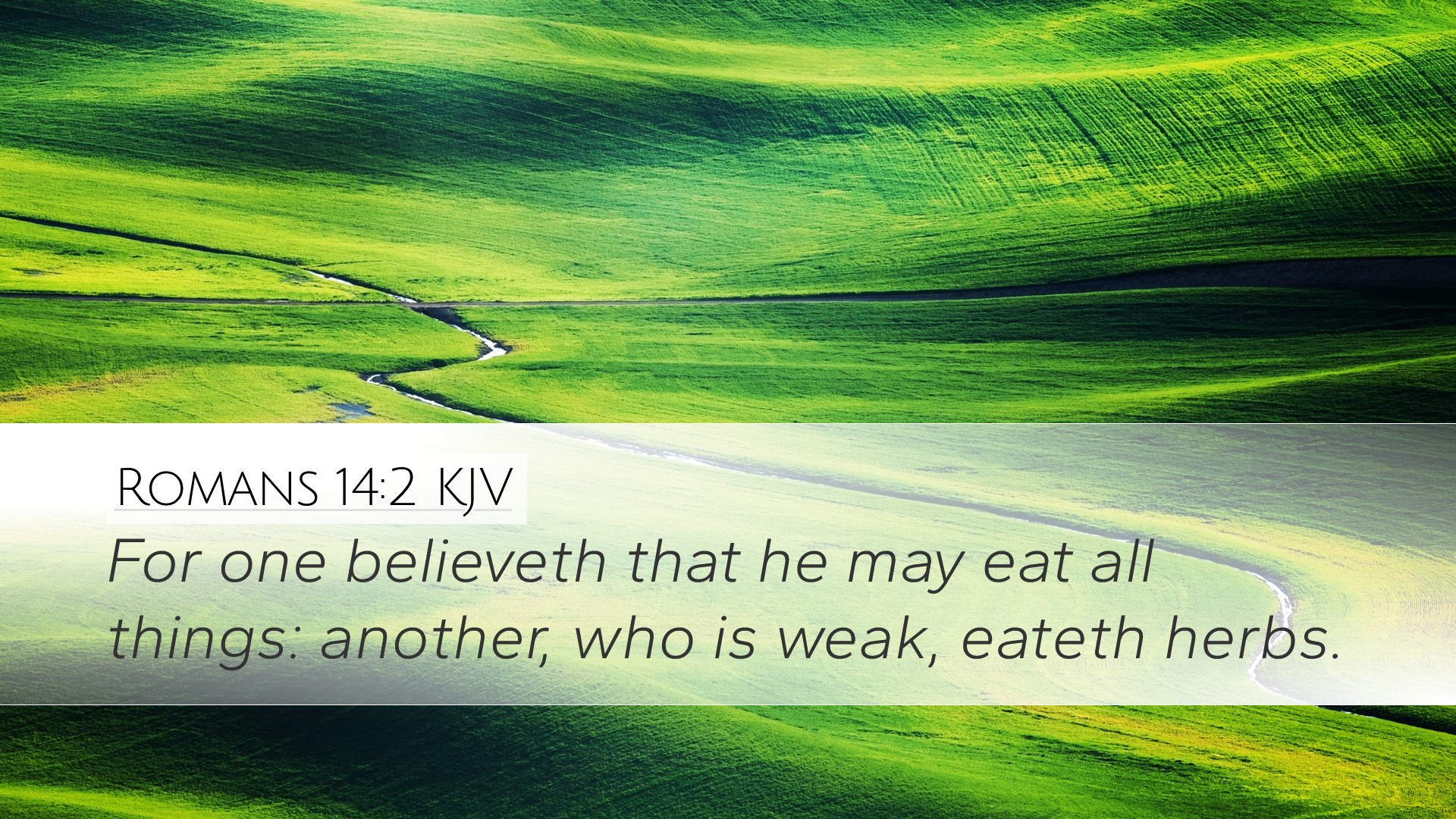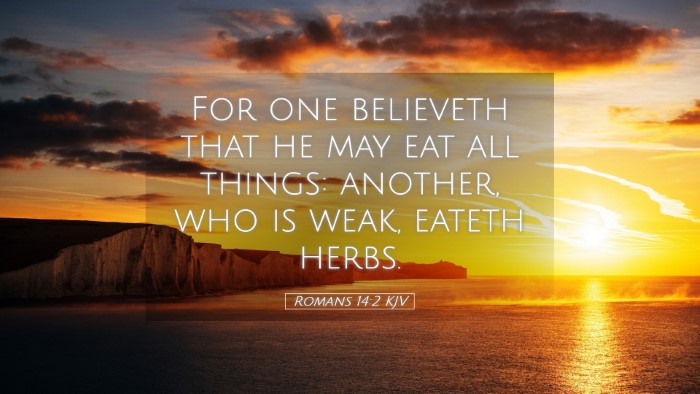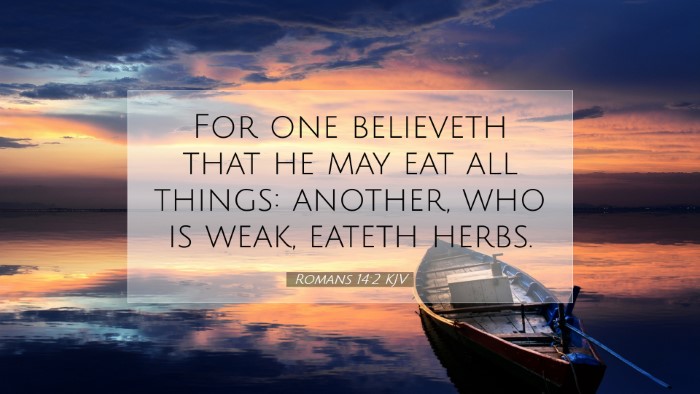Old Testament
Genesis Exodus Leviticus Numbers Deuteronomy Joshua Judges Ruth 1 Samuel 2 Samuel 1 Kings 2 Kings 1 Chronicles 2 Chronicles Ezra Nehemiah Esther Job Psalms Proverbs Ecclesiastes Song of Solomon Isaiah Jeremiah Lamentations Ezekiel Daniel Hosea Joel Amos Obadiah Jonah Micah Nahum Habakkuk Zephaniah Haggai Zechariah MalachiRomans 14:2
Romans 14:2 KJV
For one believeth that he may eat all things: another, who is weak, eateth herbs.
Romans 14:2 Bible Commentary
Commentary on Romans 14:2
Romans 14:2: "For one believeth that he may eat all things: another, who is weak, eateth herbs."
Introduction
The Apostle Paul addresses a critical aspect of Christian living in Romans 14, focusing on the diversity of beliefs among believers particularly regarding dietary practices and religious observances. In verse 2, Paul highlights the differing perspectives of believers—those who embrace full liberty in eating and those who adhere to a more restrictive practice.
The Strong and Weak Believer
- Understanding "the Strong": Matthew Henry notes that the "strong" believers are those who understand the principle of Christian freedom, recognizing that they may enjoy a variety of foods without violating God's moral law. They view the dietary restrictions often associated with Jewish law as unnecessary under the new covenant in Christ.
- The "Weak" Believer: Conversely, the "weak" believer references one who is not fully convinced of the liberty believers have in Christ. Albert Barnes explains that such individuals may hold onto old traditions or feel a moral obligation to abstain from certain foods due to their spiritual conscience.
Theological Insights
- Liberty vs Legalism: Adam Clarke emphasizes the importance of liberty in Christ, urging believers to exercise their freedom without leading others into temptation or moral conflict. This underscores the tension between personal convictions and mutual respect among Christians.
- The Nature of the Conscience: The varied responses to food and dietary laws stem from different levels of spiritual maturity and understanding. Those who "eat all things" have developed a strong conscience, while those who eat only "herbs" may be more susceptible to doubt and guilt.
Application for Believers
- Respecting Differences: It is essential for believers to respect each other's convictions. Paul’s discourse serves as a reminder that community within the church requires acknowledging differing convictions about personal conduct, such as dietary choices.
- Unity in Diversity: Emphasizing unity while accepting diversity in opinions is critical for fostering a healthy church environment. The strong believers are encouraged to avoid flaunting their freedom to the potentially distressing of the weak believers.
Conclusion
Romans 14:2 invites believers into a deeper understanding of liberty and responsibility in Christ. Both strong and weak believers are integral parts of the body of Christ, and through walking in love and respect for one another's convictions, the church can reflect the unity and diversity intended by God. As Matthew Henry aptly suggests, the directive is not merely about what we eat but how we love one another in our differences.


